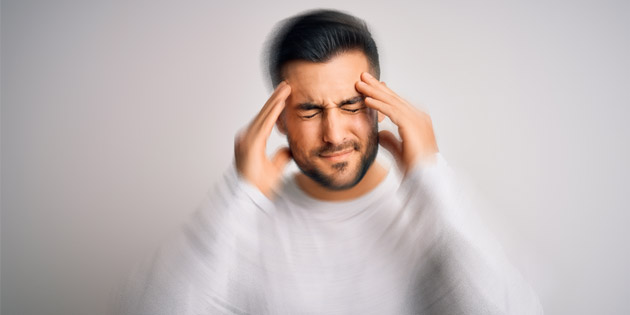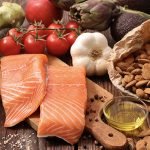There are several foods that cause vertigo and should be avoided or limited. Reducing or eliminating these foods from the daily menu has been shown to reduce the occurrence of vertigo, which can interfere with activities.
Vertigo is not a disease, but rather a symptom of a variety of medical conditions. The most common cause of vertigo is BBPV, which is caused by disturbances in the ear’s balance center. Although it can be extremely inconvenient, this condition is not a serious illness and should resolve itself within a few days.
Dizziness and vertigo are not the same thing. Dizziness is a condition in which a person feels dizzy, weak, and appears to faint. Vertigo is a sensation of the body or environment such as spinning.
Avoiding foods that cause vertigo is one effort to prevent the appearance of vertigo symptoms, because these foods can disrupt the body’s fluid balance, which then disrupts the balance center in the ear.
Types of Foods that Cause Vertigo
Eating foods that cause vertigo can cause the symptoms to reoccur and become worse. As a result, vertigo patients should avoid the following foods:
1. High-salt foods
Adults should consume 5 grams of salt per day, which is equivalent to 1 teaspoon. Excessive salt consumption can cause fluid imbalance, which can result in vertigo.
Limit your intake of salty foods, such as fast food, canned food, cheese, and tasty snacks, to avoid frequent bouts of vertigo.
2. Sugar-rich foods
Foods that cause vertigo are sweet or contain a lot of sugar. Excessive consumption of sweet foods, like salt, can disrupt fluid balance, including fluid in the ear. This condition can then lead to vertigo complaints.
To avoid recurrent vertigo caused by sugary foods, it is recommended that you limit your daily sugar intake to no more than 50 grams per day, or the equivalent of 4 tablespoons.
3. Caffeine
According to some research findings, excessive caffeine consumption can increase a person’s risk of experiencing vertigo and headaches. This is due to caffeine’s side effects of dehydration, which causes changes in the body’s fluid balance, resulting in vertigo symptoms.
To prevent vertigo symptoms from coming back, you can limit consumption of drinks and foods that cause vertigo that contain caffeine, such as chocolate, tea or coffee.
4. Alcohol
Alcoholic beverages and alcoholic foods, such as tapai and durian, can affect fluid balance and cause dehydration if consumed in excess or too frequently. Vertigo can be caused by either of these conditions.
As a result, consumption of alcoholic beverages and foods containing alcohol should be limited to avoid recurrence of vertigo.
MSG and high-cholesterol foods, in addition to some of the foods mentioned above, are thought to cause vertigo recurrence. However, more research is needed to determine the relationship between the two as a cause of vertigo.
The consumption of the foods listed above that cause vertigo should be limited or avoided, especially if you have a disease that can cause vertigo. Foods that are good for vertigo sufferers include oats, eggs, fish, ginger, bananas, and nuts.
If you have avoided various foods that cause vertigo but still experience symptoms, you should see a doctor. This allows the doctor to determine the cause of your vertigo and provide appropriate treatment.




